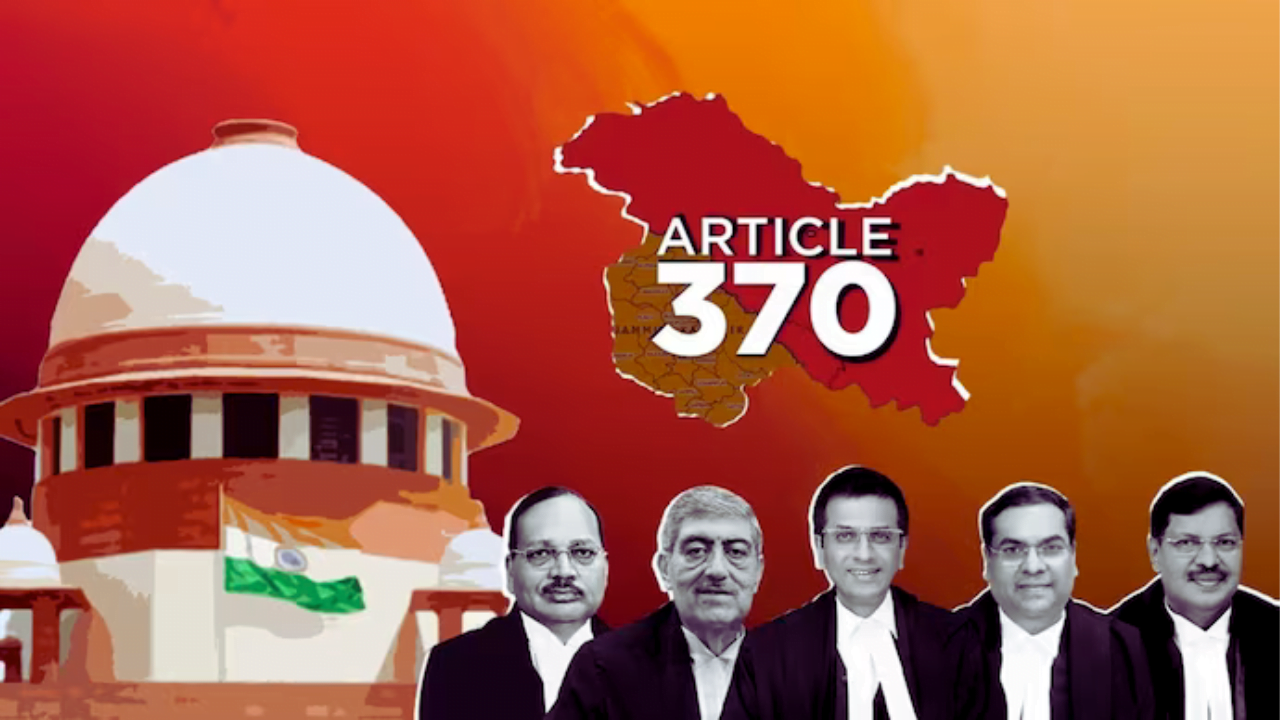In its ruling on Article 370, the Supreme Court held that Jammu and Kashmir lacked internal sovereignty.
Chief Justice of India DY Chandrachud said on Monday that when Jammu and Kashmir joined the Union of India after gaining independence, it entirely gave up its sovereignty. He was delivering the decision of a five-judge panel in a series of cases pertaining to the repeal of Article 370.
He affirmed the President of India’s and the Center’s authority to rescind Article 370 and stated that Jammu and Kashmir lost its independent sovereignty upon joining the Union of India.
“J&K gave up total sovereignty when they merged. The J&K Constitution just served to clarify the state’s relationship with India,” he continued.
According to him, Jammu and Kashmir’s constitution was “subordinate to the Constitution of India” and the region lacked internal sovereignty.
The bench, which included BR Gavai, CJI Chandrachud, Sanjay Kishan Kaul, Sanjiv Khanna, and Surya Kant, stated that there are limitations on the authority that can be used following the imposition of President’s Rule under Article 356.
Under the President’s direction, the Centre is able to carry out state-level government functions. By proclamation, the President or Parliament may exercise a state’s legislative powers, the court continued.
In addition, the court dismissed the petitioners’ arguments by stating that Article 370 was a “temporary provision”.
According to CJI Chandrachud, the President is able to repeal Article 370. He claimed it was not necessary to have a recommendation from the Jammu and Kashmir Constituent Assembly.
The Chief Justice noted that Jammu and Kashmir’s integration is the purpose of the article’s abrogation power.
“Can’t sit in appeal over the President’s decision to abrogate Article 370 except in extraordinary circumstances,” he stated.
He declared that the court could not hold the Article 370 abrogation to be “malafide”.
“President could have applied all provisions of the Constitution to J&K with the concurrence of the Centre and it wasn’t required to also obtain concurrence of the state assembly,” he stated.
After 16 days of hearings, a five-judge Constitution bench led by Chief Justice of India (CJI) DY Chandrachud had reserved its decision on up to 23 petitions in the case on September 5 of this year. Justices S K Kaul, Sanjeev Khanna, B R Gavai, and Surya Kant were also on the bench.
For More: News
Jammu and Kashmir lost its internal sovereignty when it joined India, according to CJI DY Chandrachud. According to him, there was no solid evidence that the President’s 2019 instructions were an abuse of authority or an unwarranted use of authority. The court ordered the Centre to arrange for the restoration of statehood and the holding of elections for the Legislative Assembly, even though it acknowledged that the former state’s 2019 reorganisation into Union Territories was only a temporary measure.
In his concurring opinion, Justice Kaul suggested that a Truth and Reconciliation Commission be established in J&K in order to acknowledge the purported crimes committed in the area by the State and its agents.
